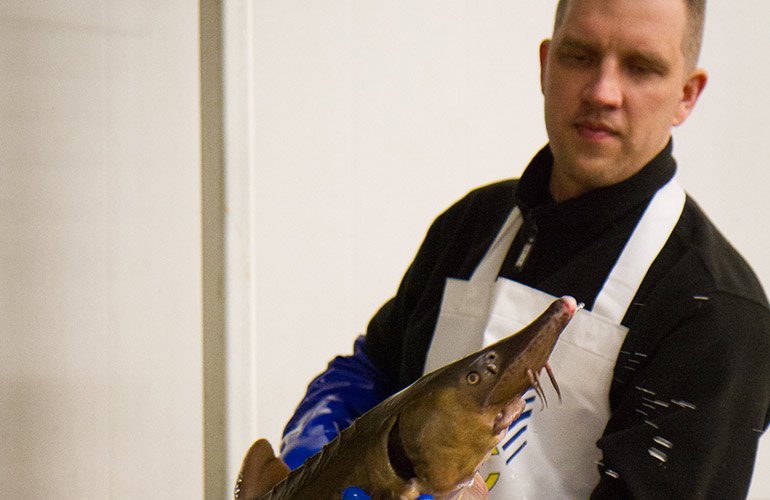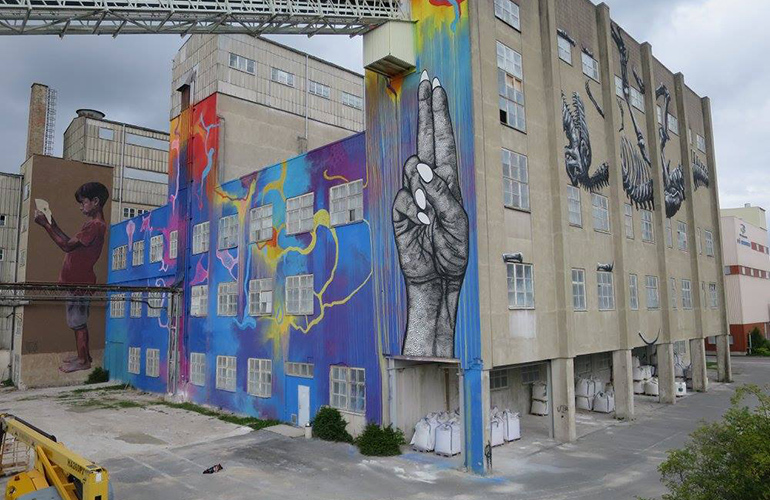All our mills use residual biomass, such as sawdust and bark, from production to generate energy. Most of that energy is used to power the mill itself, but because of our mills’ high energy efficiency levels, there is often more heat produced than needed.
“The surplus heat cannot be stored so it needs to go somewhere, and selling it to others near our mills makes sense,” says Heinz Felder, Head of Investments and Energy at Stora Enso. “One significant recipient of this surplus heat is local district heating networks that provide heat to towns and cities.”
Currently 13 Stora Enso mills in Finland, Sweden, and Austria sell heat to district heating systems. The heavy infrastructure needed is already in place in these locations, so the communities only need to decide how they will heat the system. One option is to buy it from a nearby industrial parter: in Finland, Stora Enso’s Heinola Fluting Mill has been the main provider of district heating for the town of Heinola and its 20 000 residents since the 1980s.
“About 95% of Heinola’s heat comes from our mill,” says Jere Nieminen, Operations Manager at Heinola Fluting Mill. “During annual maintenance stops or in very cold weather the town uses spare energy units – as communities with district heating networks often do. But they prefer to use heat from us because it comes from a renewable source and is cheaper than the alternatives.”
Positive synergies with fellow businesses
Stora Enso also sells heat and electricity to other businesses near our operations. In Belgium, our Langerbrugge Mill and Volvo Cars opened a 4-kilometre pipe that transfers hot water from the mill to the car plant, to be used for heating.
In Varkaus, Finland, a local fish farm uses excess heat from our board mill to heat the indoor fish pools. The farm is also powered by electricity from the mill and uses the mill’s water treatment plant. “For us it’s a perfect match. We’ve enjoyed very good cooperation since we started ten years ago,” says Jani Rantula, Production Manager at Carelian Caviar.

Jani Rantula holding a sturgeon. The fish are between five and nine years old when the roe is harvested.
In addition to selling heat to external partners, in the future our mills may invite nearby businesses to move their operations inside the mill gates.
“Let’s say a customer, maybe a printing house, decided to do this,” says Felder. “Being on the same premises would make it easier to provide them the heat and electricity they need – but it would also mean less logistics when delivering them the paper they have purchased from us.”
Donated heat supports local artists and athletes
Our Nymölla paper mill in Sweden donates “used” heat as part of their community investment work. Once hot water sold to the local municipality has circulated through the district heating system, it comes back to the mill. It is not high-quality enough to be used again for the same purpose but is still perfectly fine to be used at individual destinations.
One recipient of this donated heat is a nearby sports complex with an outdoor football field and a sports arena – a new way to sponsor local sports teams. The mill also donates heat to IFÖ Center, an old ceramics factory turned into a centre for the arts. As part of the agreement, the art centre gives Nymölla Mill a piece of artwork each year.
“IFÖ Center provides work spaces for high-class artists, and it’s great that we can support them in this way,” says Michael Lindemann, Mill Manager at Nymölla Mill.

"Thanks to the cooperation with Nymölla Mill, we can now work all through the Swedish winter," says Teresa Holmberg, artist and founder of IFÖ Center (pictured).





